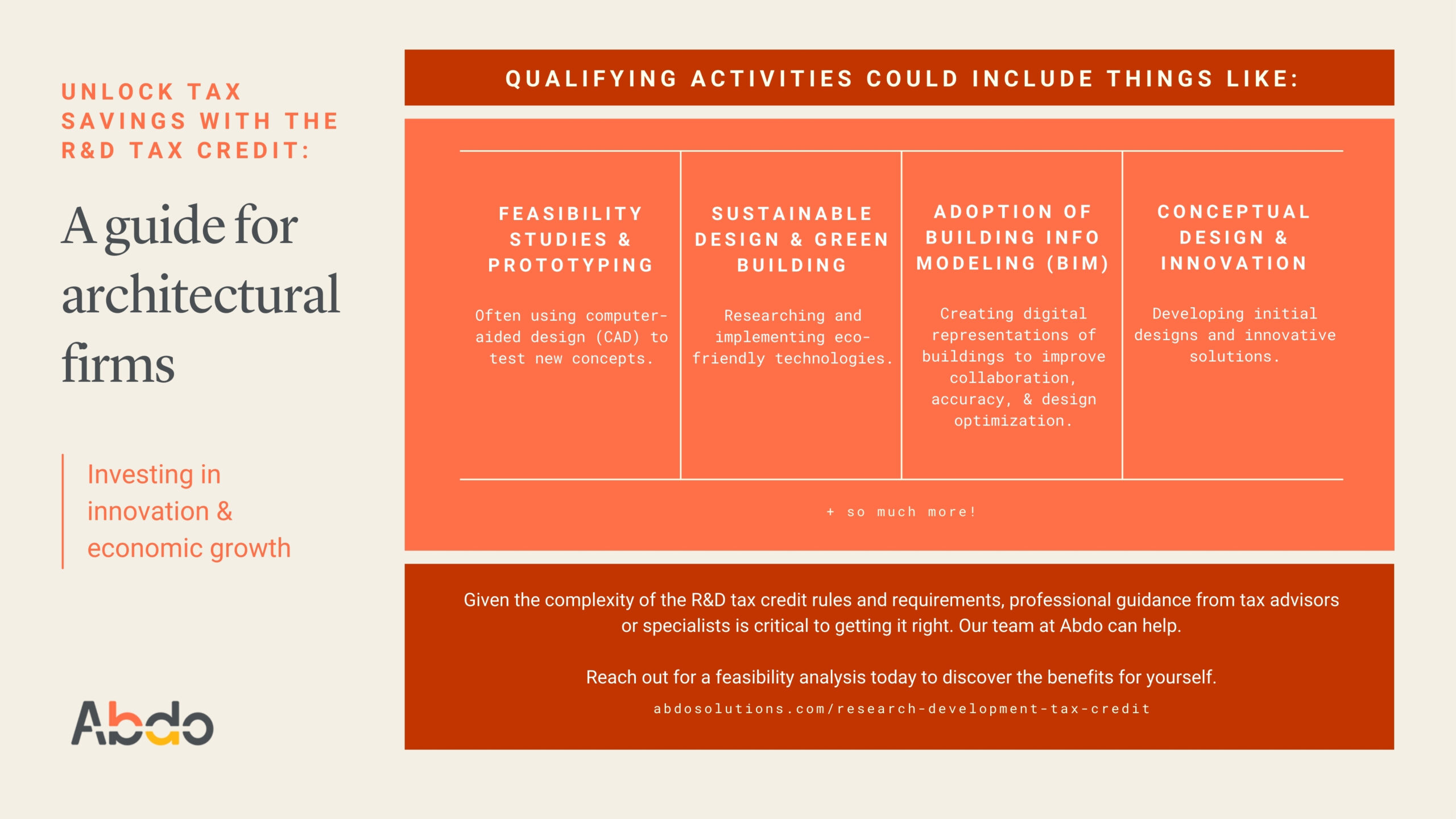Article
Unlock tax savings with the R&D tax credit: A guide for architectural firms

Innovation is the heart of architecture, driving the creation of groundbreaking designs and structures. From sustainable materials to cutting-edge technologies, you’re constantly pushing the limits of creativity and functionality. What you might not realize is that this innovative spirit can qualify your firm for significant tax incentives, specifically the Research & Development (R&D) Tax Credit under Section 41 of the Internal Revenue Code.
The R&D tax credit is designed to encourage businesses in various industries to invest in research and development, promoting innovation and economic growth. While it’s often associated with sectors like pharmaceuticals and technology, architectural firms are increasingly recognizing that their innovative work makes them eligible too.
Qualifying activities for architectural firms
To qualify for the R&D tax credit, your firm must engage in activities that meet the IRS criteria. These activities typically include:
- Conceptual design and innovation for new builds: Developing initial designs and innovative solutions.
- Feasibility studies and prototyping: Often using computer-aided design (CAD) to test new concepts.
- Sustainable design and green building: Researching and implementing eco-friendly technologies.
- Adoption of Building Information Modeling (BIM): Creating detailed digital representations of buildings to improve collaboration, accuracy, and design optimization.
- Development and utilization of advanced technologies: Implementing new tools and techniques to enhance your design processes.
Ready for your feasibility analysis? Click here to get started.
Benefits of the R&D tax credit
Leveraging the R&D tax credit can help your firm offset a portion of its research and development expenses, allowing you to reinvest in future innovations. This fosters continued growth and excellence within the industry. As architecture evolves to meet societal, environmental, and technological challenges, the R&D tax credit serves as a valuable incentive to push the boundaries of design and create a more sustainable world.
Building a foundation for the R&D tax credit
While the R&D tax credit can offer substantial benefits, navigating the complexities of tax law and compliance requirements can be challenging. Many firms enlist the help of tax professionals experienced in R&D tax credit claims to ensure accuracy and maximize potential savings.
If you’d like guidance on qualifying for the R&D tax credit, the experts at Abdo can help. Our R&D team can advise you on the necessary steps and help you plan for future tax impacts. Learn more about the guidance we offer and then reach out for a feasibility analysis to discover what the credit could do for you.
July 22, 2024
Meet the Expert
Reach out to our team
Let's discuss
Interested in discussing this topic further? Fill out this form to get in touch with our advisors and get the conversation started. Together, we can help light the path forward to a brighter future.
"*" indicates required fields

